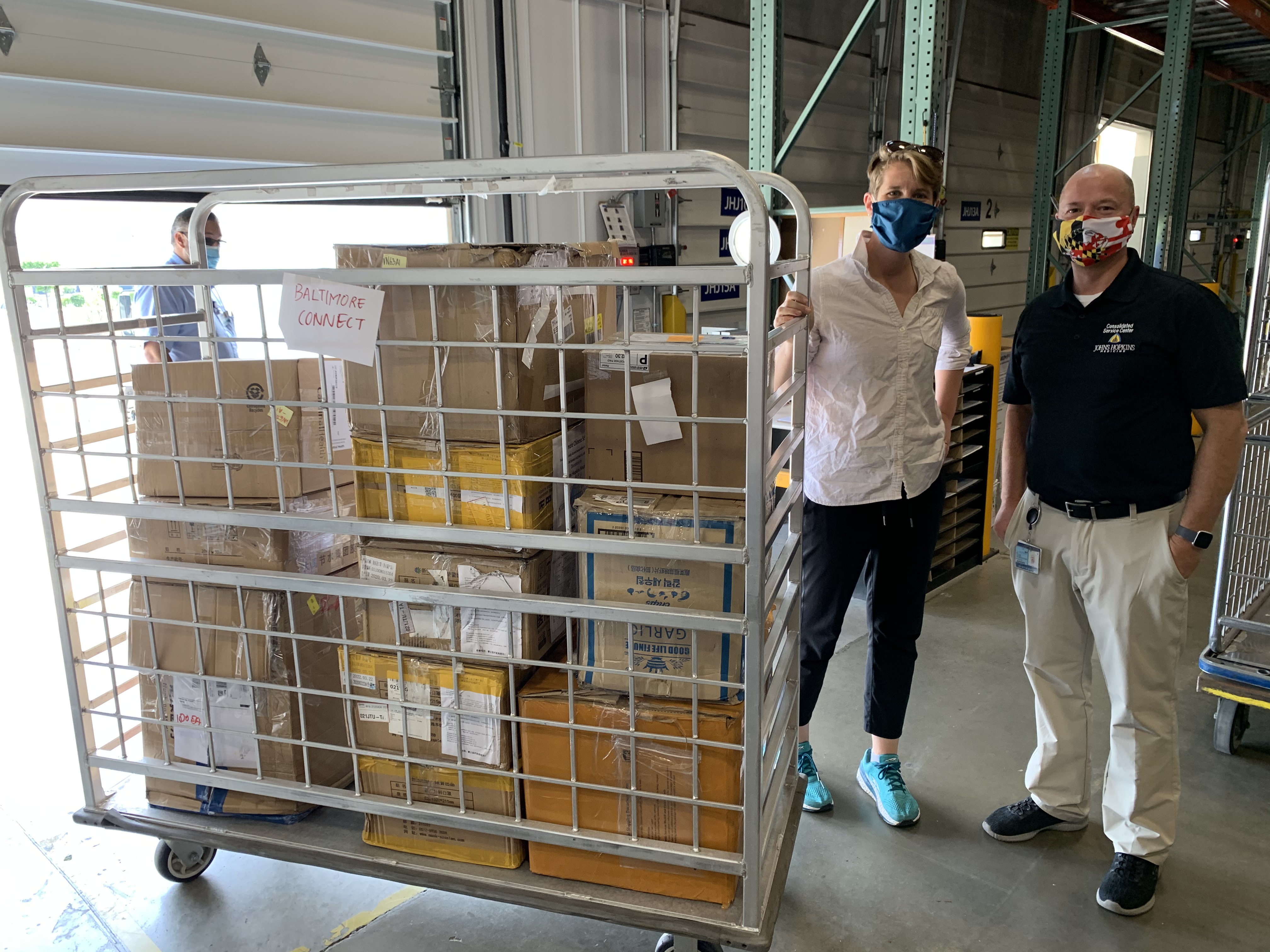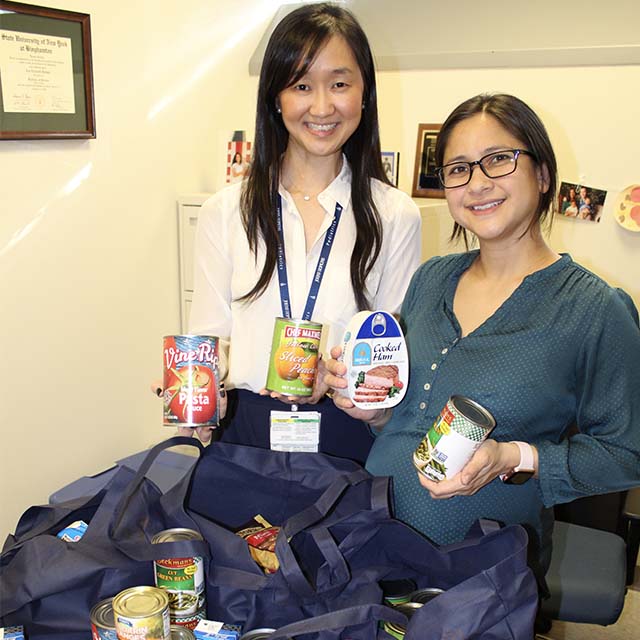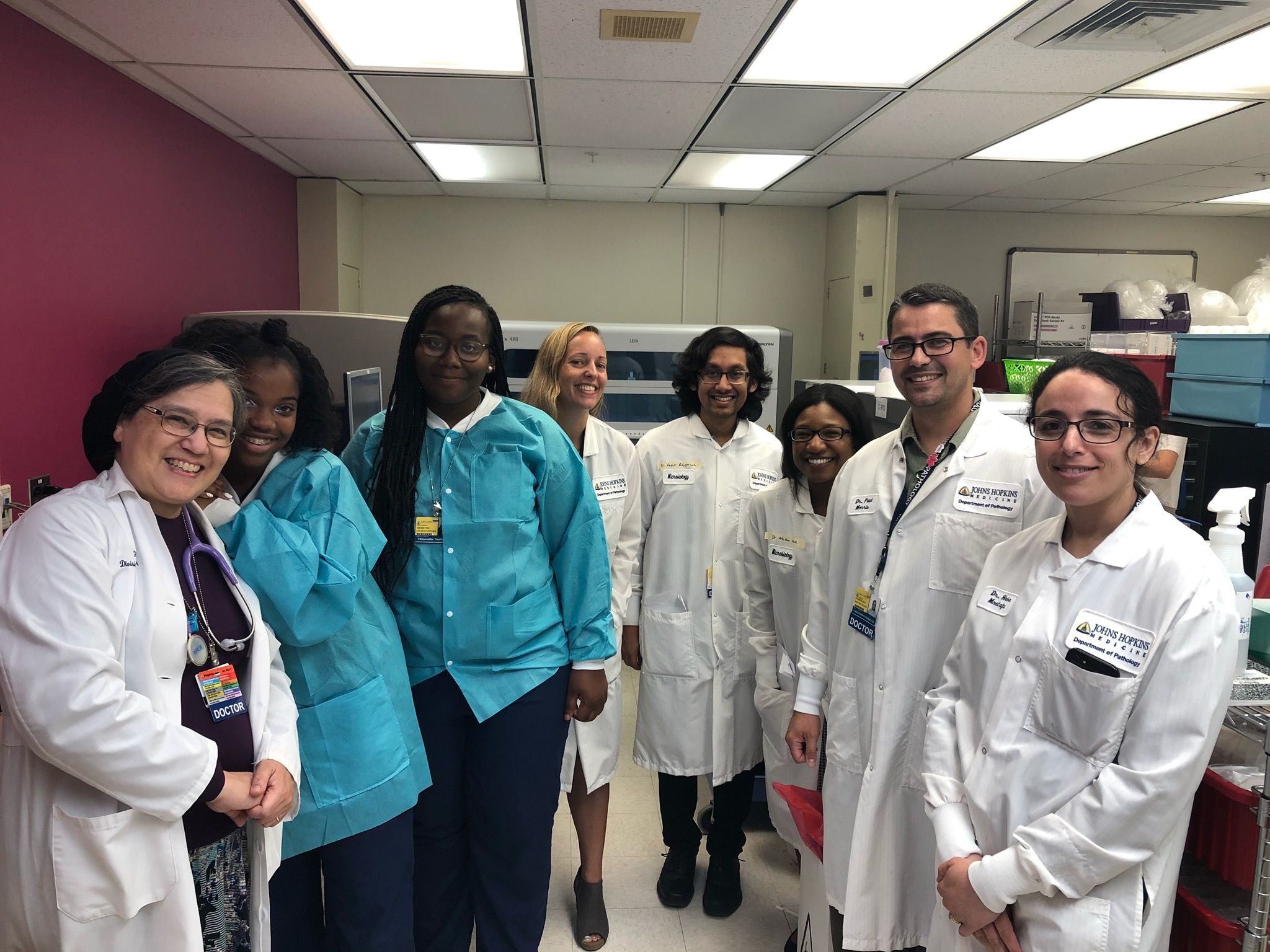One in four Black residents in Baltimore have limited access to affordable and nutritious food, according to the Baltimore City Planning Department. The local youth-led Granny Project aims to help resolve that issue by providing food to low-income community members and then hosting weekly YouTube Live sessions with cooking and exercise tips.
“We wanted to bring awareness to food insecurity and food deserts,” says Breyanna Dabney, 17, who was in charge of the Granny Project’s budget and delivering food packages to the participants. “We wanted to help people have access to healthy food. We’ve successfully accomplished six videos, and lots of people participated. We got really good feedback.”
The Granny Project is part of HeartSmiles, a Baltimore-based organization dedicated to motivating, inspiring and empowering Baltimore’s youth. Program manager Morgan Prioleau says a $10,000 Johns Hopkins Neighborhood Fund grant assisted in making the Granny Project possible. The fund supports nonprofit organizations that serve the communities near Johns Hopkins campuses and are associated with Johns Hopkins Medicine through employee or institutional involvement. The Neighborhood Fund uses pledge donations made through the United Way campaign to help local nonprofit organizations build stronger neighborhoods by addressing needs in areas of community revitalization, education, employment, health and public safety.
Dabney, a student at Perry Hall High School in Baltimore County, worked with a budget of $200 to $250 each week and shopped for groceries at BJ’s and Sam’s Club so the group could buy in bulk and save money.
“The whole point was to make easier stuff,” Dabney says. “It was so easy that a 10-year-old was able to understand the recipes and go along with the steps.”
“We’re an organization that places young people at the intersection of opportunity and access,” Prioleau says. “We support them to achieve success on their terms. If they want a job, how can we connect them to resources? If they want to be a dancer, how can we help or support them?”
Prioleau says young people involved in the youth advisory board at the Johns Hopkins University Bloomberg School of Public Health and HeartSmiles summer programming saw there was a need for food in their communities. They came up with the Granny Project. The group identified elders in the communities who enjoy cooking and asked them to participate in a live cooking show. The weekly show also includes a conversation about health and wellness and a workout. All the ingredients for each week’s meal are delivered to those who sign up in advance.
HeartSmiles mentor Kaitlyn Harper, a doctoral candidate in human nutrition at the Bloomberg School of Public Health, says the youth-led group was forced to change their programming tactics when the COVID-19 pandemic started. Instead of doing a live, in-person gathering, they worked to figure out how to do the project online. They decided to present a YouTube Live broadcast every Tuesday from 6 to 8 p.m.
“Our young people have done a great job figuring it out, and whenever a problem comes up they work together to come up with the solutions,” Harper says.
Dabney’s grandmother, “Granny Sherry” Holifield, led two sessions. She taught the group to cook chicken fajitas and shrimp stir-fry.
“I like being able to teach the kids some healthy meals and give them a way to try other foods,” Holifield says. “It’s also important that they learn how to follow a recipe.”
Summer Rhoades, a 17-year-old student at Baltimore’s Western High School, says she was glad to see that everyone worked at the same speed during the live broadcasts and paid attention to the steps.
“We ask questions while we’re waiting for the food to cook,” Rhoades says. “I’m proud of how it went so smoothly.”
Rhoades says the meals the group learned to cook were healthy, but the workouts were also important. Corey Harris, an 18-year-old Coppin Academy High School graduate, led the workouts.
“They loved my energy,” Harris says. “I tried to watch the chat so I could see what people wanted. I listened to them and tried to make the workouts use just body weight. We did mountain climbers, pushups, jumping jacks and crunches. Then I gave them a little cool down before they got to the recipe.”
Baltimore School for the Arts student Amaya Murillo, 16, was in charge of promoting the program and hosting the show.
“I got to be in a leadership role,” Murillo says. “I learned a lot about myself and learned what it’s like to be a leader of a team that’s doing something important. I also learned about communication, accountability and responsibility. I took away these lessons and applied them to other projects.”
Murillo says the Granny Project helped her have more of an appreciation for food because she now understands what goes into it.
“I learned different things to use at home,” she says. “I never really knew what to do, so it was nice to be able to learn more. We made normal stuff, like mac and cheese, that I’m used to eating, but it was nice to understand the prep side of it. I learned that people cook in different ways. I never realized that it’s different for everybody. Every granny did it differently each time, and I learned many different techniques. Overall, this was a great experience. I hope we can do something like this again.”



